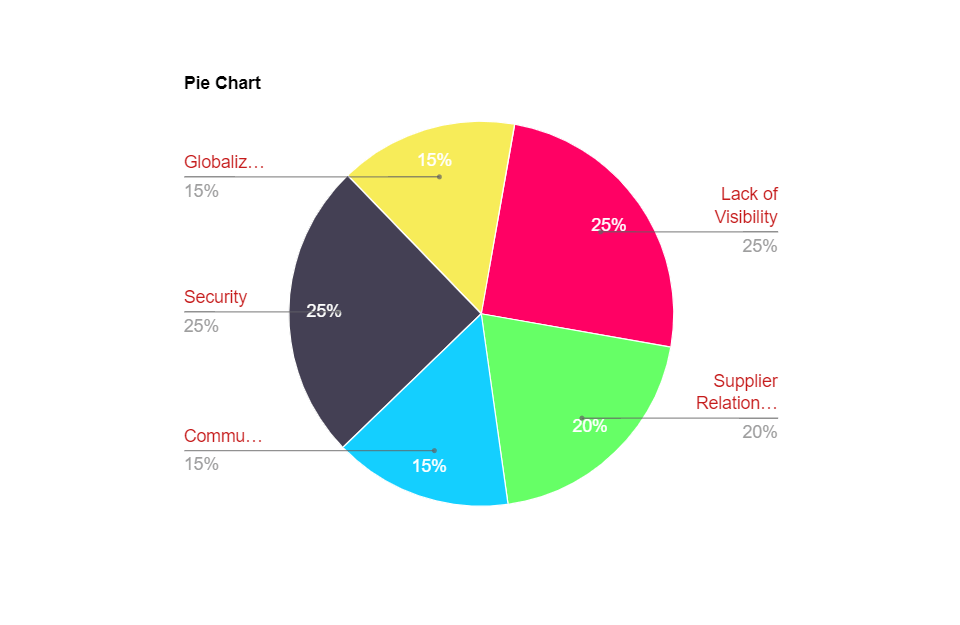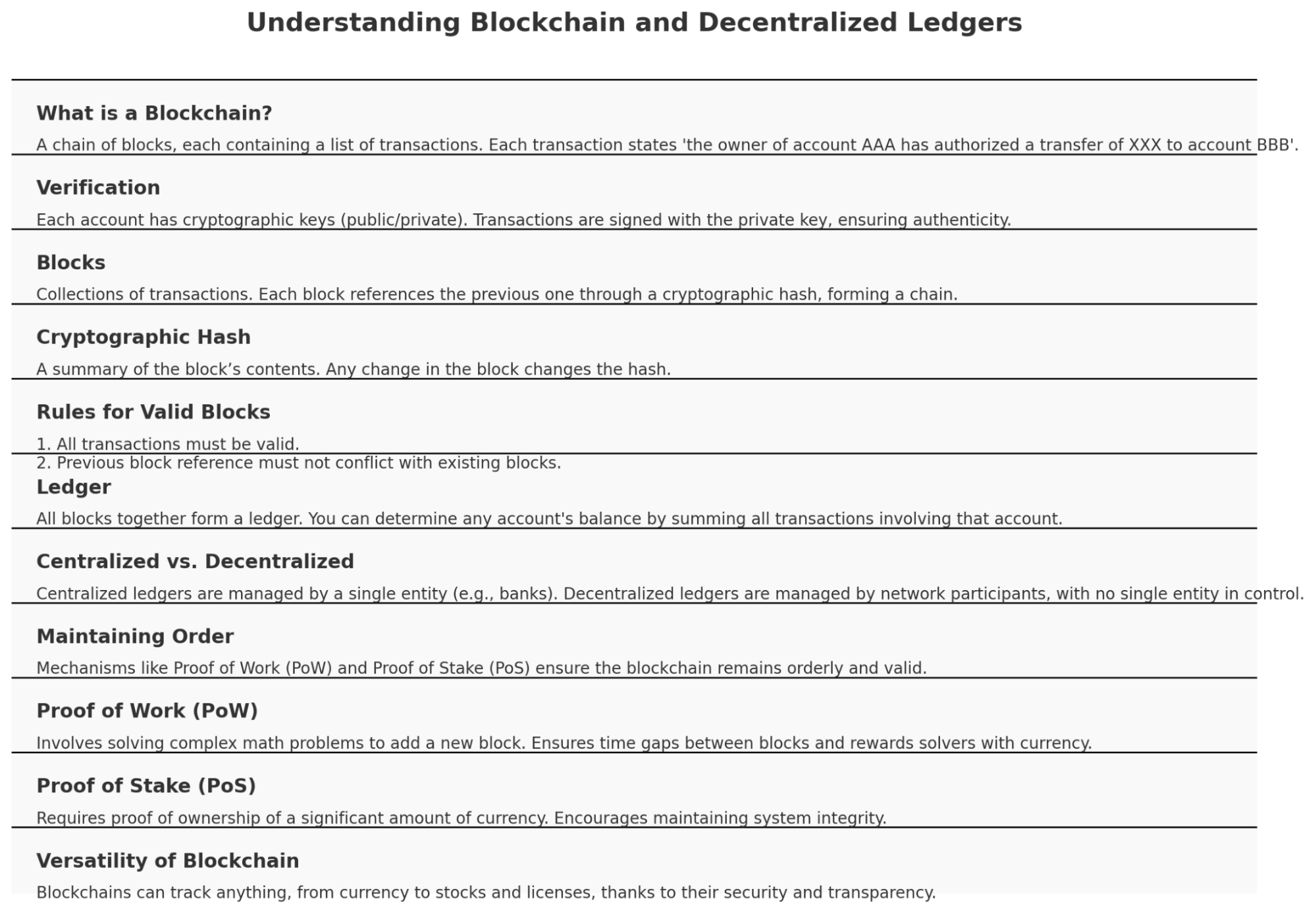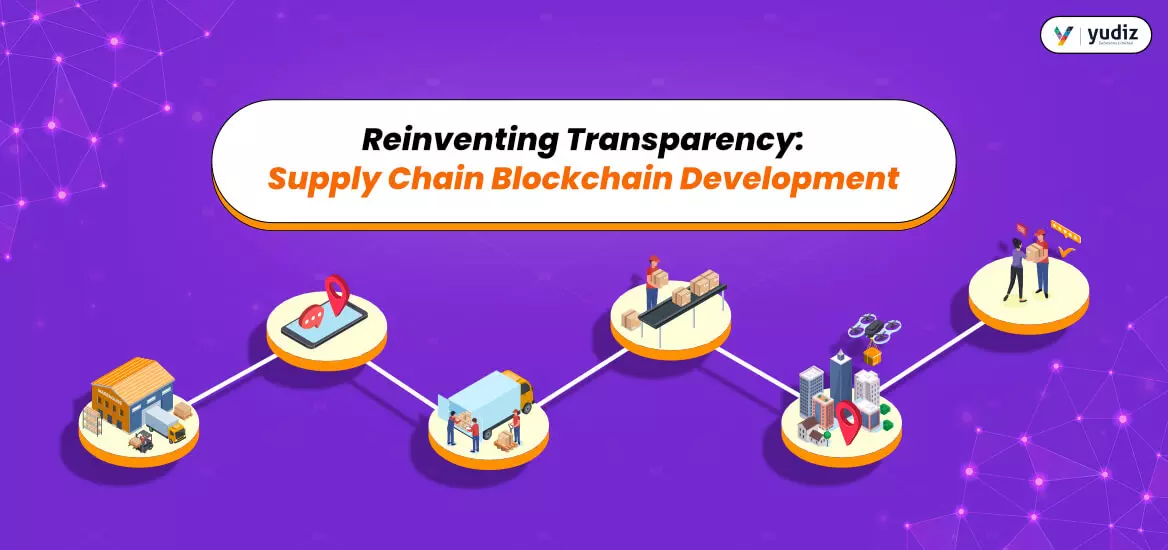Innovation21st June 2024
Supply chain management is a massive scale process. We are talking about the flow of goods, finances related to products and services, handling of raw materials, etc. Moreover, the entire process needs to strictly check three boxes; efficiency, quality, and agility. The goals are quite simple; plan, source, make original, deliver, and return.
Its basic form of supply chain in which there are entangled technical, legal, nontechnical, and other relevant processes are involved. However, as you can see the complex structure needs to be polished. This is where supply chain blockchain development helps a company to achieve its goals without hindrance. Integrating blockchain technology into various stages allows an organization to unlock adequate transparency, traceability, and security.
Understanding the Challenges of Traditional Supply Chain Management
The complexity of modern business operation models keeps on increasing. There are several factors affecting the growth of scalability of a supply chain management company. On the other hand demand demographics, geographical locations, product availability, and other relevant risks contribute to these factors too.
In the year 2021, the supply chain industry faces an enormous challenge that will change its strategic approach towards everything. Because of the pandemic, according to Statista there 57% of companies listed supply chain shortage and disruption as one of the main challenges. Not just that 46% of companies stated how demand forecasting and synchronization of the supply chain were one of the main obstacles.
As mentioned before considering the complexity there are other relevant factors too. The factors listed below are in reference to the supply chain blockchain. It explores targeted pain which the application of blockchain in the supply chain can eliminate.
- Lack of Visibility: Moving through different locations, phases, and stages goods become victims of lack of visibility. Sure there is real-time data analytics and tracking, but still fogged by irrelevant information. Such fogged loopholes are like fuel to already complex problems the chain is experiencing.
- Supplier Relationship Management: Maintaining a robust relationship between suppliers and customers is essential practice. The hierarchical process is not single channeled rather it is multichannel and complex. This multichannel approach makes the entire practice or approach costly and time consuming.
- Communication and Collaboration: lack of standardized procedures and information silos cause disruption in communication. It leads to inefficiencies in collaboration and a supply chain company might not be able to operate smoothly.
- Security: Every leading blockchain development company will provide strong evidence on how the technology ensures reliable security. The reason is simple supply chains are susceptible to cyberthreats, thefts, and piracy. Sensitive supply chains when exposed to cyberattacks can lead a company to millions dollars in loss.
- Globalization: The nature of globalization comes with its own set of challenges. However, the concern here is cross border payment. There are numerous regulations, fees, and time zone differences that affects a supply chain to go global.

Despite such circumstances, the global supply chain market is expected to reach 6.31 billion US dollars by 2029. For 2024 the estimated market size target is 0.84 billion USD. However companies tend to strategies their approach in order to overcome such difficulties.
One of those strategies is the adoption of technology for long term scalability and survival. Supply chain blockchain development is the first phase of such technology adoption. A study by Gartner shows that in 2024,83% of supply chain organizations are planning to invest in ecosystem enabling technology. Now, can blockchain in the supply chain be proven an ecosystem enabling technology? Let’s find out.
What Blockchain Technology
Blockchain technology is better known as distributed ledger. The word itself is a description metaphorically and technically it will help us discover that blockchain is nothing but a chain of blocks. More clearly it’s how the information is stored. The below image provides information regarding the technology, which highlights the applications of blockchain in supply chains.

But what’s so unique about blockchain is that makes it a variable tech for the supply chain. So practically compatible that supply blockchain development has become a top priority for organizations looking to revamp their operations. Let’s study the advantages and possibilities through case studies helping you to understand supply chain blockchain development.
Revamp Your Supply Chain Management with Blockchain Development Company
A blockchain development company allows you to hire experts who will enable your supply chain through various means. They understand the benefits of blockchain and integrate agile development practices.
They on a fundamental basis help you to explore the core strengths of blockchain technology. Their blockchain-based supply chain app solutions help your organization tackle previously mentioned challenges.
Specifically tailored to enhance your ecosystem in terms of transparency, traceability, immutability, and security. But how do they do that? What exactly does a supply chain blockchain development company dealing with supply chain solutions do?
1. Design and develop blockchain supply chain app solutions.
- Development of blockchain platforms and infrastructures
- Blockchain-as-a-service solutions
- Smart contract and decentralized application (dApps) development
2. Offer regulatory, cryptocurrency, and finance services.
- Development and management of digital currencies and wallets
- Banking and insurance solutions on blockchains
- Secure transaction and payment systems
3. Supply chain blockchain development and data management.
- Traceability and transparency solutions
- Data security and identity management
- Development of efficient record-keeping and auditing solutions
4. Consultancy in supply chain blockchain development.
- Integrate blockchain into businesses
- Training and workshops on blockchain technology
- Developing supply chain blockchain development strategies for different industries
5. Innovative advantages of blockchain in supply chain management.
- New blockchain apps use
- Research aimed at efficiency and scalability in blockchain solutions for supply chain.
- Collaboration with other industries in finding new benefits of blockchain in the supply chain landscape.
Impact of Blockchain-based Supply Chain Solutions
Let’s consider areas of operation that will primarily benefit by integrating solutions based on supply chain blockchain development. The list will include logistics and transportation, inventory management, supplier management, quality control, risk management, customer service, and financial operations. The impact and advantages will include:
1. Enhanced Visibility and Tracking
Real-time Tracking using blockchain development for supply chain and logistics.
- Shared ledger for all authorized participants
- Eliminates information silos
- Improves transparency
Explanation: Blockchain supply chain management provides a single source of truth, allowing all parties to see the same data simultaneously, reducing delays and miscommunications.
Improved Inventory Management using blockchain development in supply chain management.
- Real-time inventory level tracking
- Optimizes production planning
- Reduces stockouts and excess inventory
Explanation: Accurate, up-to-date inventory data enables better forecasting and just-in-time production, lowering carrying costs and improving cash flow. These are the applications of blockchain in supply chains for inventory management.
2. Streamlined Communication and Collaboration
Secure Communication Platform using supply chain blockchain development.
- Connects all stakeholders
- Facilitates information sharing
- Enables faster problem-solving
Explanation: One of the most apt benefits of blockchain in the supply chain is it creates a trusted network. Where information can be shared securely, speeding up decision-making and issue resolution.
Automated Workflows using supply chain blockchain development.
- Smart contracts automate tasks
- Reduces manual paperwork and errors
- Improves overall efficiency
Explanation: Smart contracts can automate processes like payments or quality checks, reducing human error and accelerating operations.
3. Strengthened Security and Trust
Immutable Record-Keeping with supply chain blockchain development.
- Tamper-proof data storage
- Builds trust among participants
- Mitigates risk of fraud and counterfeits
Explanation: Once recorded, blockchain data cannot be altered, providing an auditable trail and reducing the risk of fraud or disputes. These blockchain solutions for supply chain are highly leveraged and integrated to keep the ecosystem secure.
Read: Trends in Micro-Interactions and Animation in UI UX Design
Start Your Blockchain Journey!

Conclusion
A blockchain development company has ushered in a new era of supply chain management, eliminating long-standing complexities. By leveraging cutting-edge blockchain solutions, these companies have simplified intricate processes, from tracking to verification.
The result is a more transparent, efficient, and secure supply chain ecosystem that benefits all stakeholders. Through their innovative approaches, blockchain development companies continue to reshape the landscape of global trade and logistics.




















